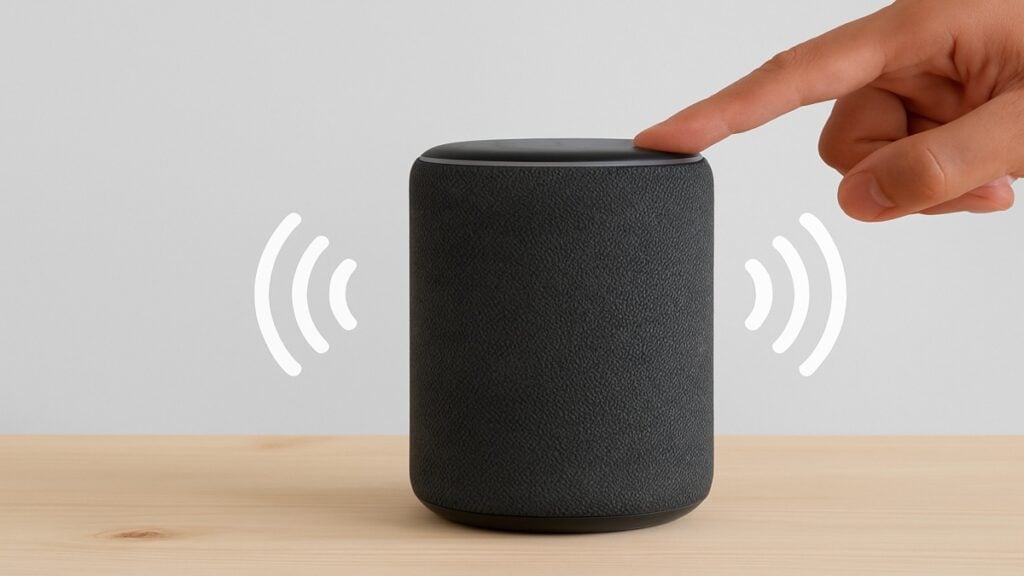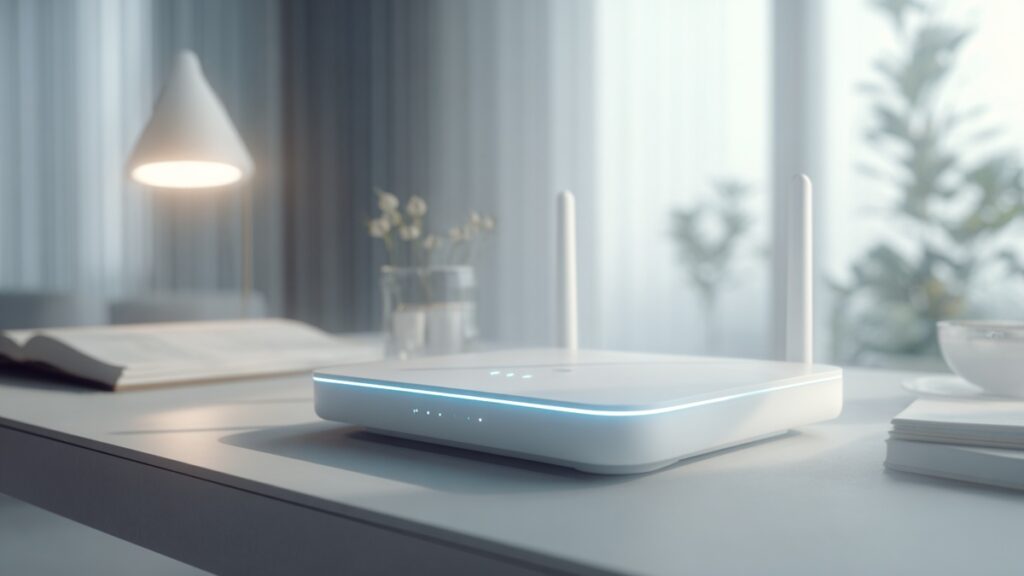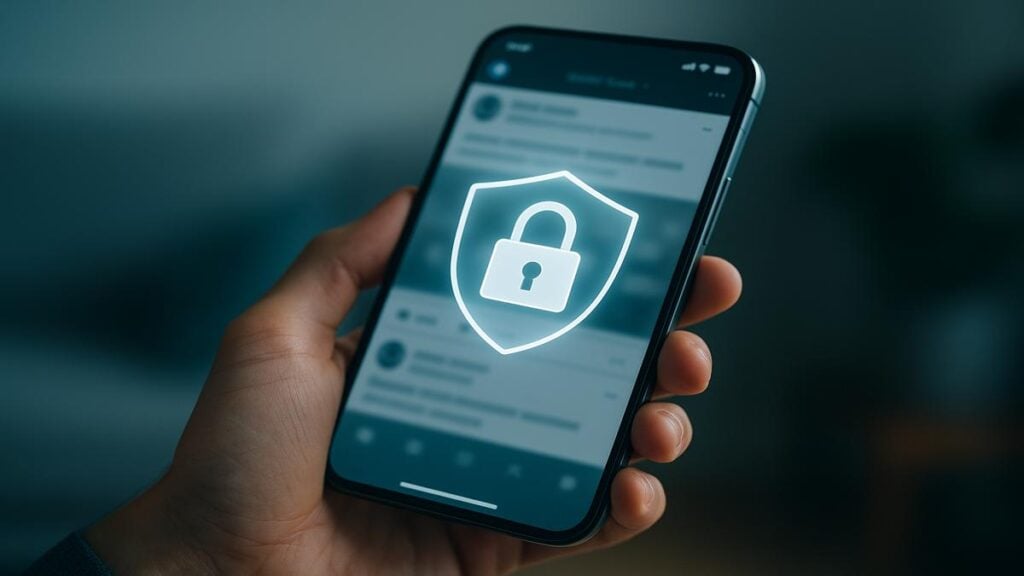Imagine this: you’re chatting with family or sharing a secret in your living room, and your Amazon Echo or Google Home is quietly listening. That scenario worries many smart speaker owners. Recent studies show roughly a quarter of U.S. adults use voice-activated speakers, yet over half of those owners admit concerns about how much data these devices collect.
Even courts are taking notice: a 2025 class-action suit accuses Alexa of “surreptitiously intercept[ing] billions of private conversations” beyond voice commands. The good news is, you can take simple steps to regain control. This guide explains how to mute your devices, delete recordings, tweak settings, and even use privacy-focused alternatives to ensure your smart speaker only hears what you want.
- Mute when not in use: Use the built-in microphone mute switch to physically stop listening. A red LED on Echo or orange light on Nest shows it’s off.
- Delete and disable recordings: Regularly remove past voice logs and turn off future saving in Alexa/Google settings.
- Enable auto-delete: Set your assistant to auto-delete recordings after a few months.
- Use privacy-minded devices: Consider Apple’s HomePod (on-device Siri) or open-source assistants that don’t send data to the cloud.
- Secure your account: Enable two-factor authentication on your Amazon/Google accounts and use strong passwords.
How Smart Speakers Listen and Why Privacy Matters
Smart speakers aren’t recording 24/7, but they do “listen” continuously for wake words like “Alexa” or “Hey Google.” Behind the scenes, the device processes audio locally until it hears its wake word. Once triggered, it records everything you say after the wake word and sends that audio to cloud servers (Amazon Web Services or Google Cloud) for processing. A recent study even found over 1,000 innocent word combinations (like “acceptable” or “election”) can falsely trigger Alexa, so accidental recordings do happen.
These recordings let the assistant understand your command (play music, answer a question, etc.) and improve its AI model. But they also raise privacy concerns. For example, people often joke that Alexa is “always listening,” and while that’s not technically true, there’s good reason to be cautious. In July 2025, a federal judge allowed a nationwide class action alleging Alexa “surreptitiously intercept[ed]… private conversations” beyond the wake-word commands.
In practice, that means sensitive family or personal conversations could be stored off-device. (Amazon denies the allegations and has built-in safeguards, but the case highlights how serious these concerns are.)
In short, smart speakers are highly useful but can capture personal data. Your voice interactions reveal routines, preferences, even private plans. That data is a target for hackers or for use in profiling and ads. Big companies say recordings are encrypted, but data breaches do happen. For instance, a 2023 breach exposed data from millions of Amazon employees – a reminder that no database is 100% safe.
Also, manufacturers’ privacy policies explicitly allow using voice data “to provide and improve our services,” including advertising. In other words, your conversations might be used behind the scenes to learn about you. All of this makes it wise to limit how much your smart speaker “knows” and shares about you.
Disable and Delete Voice Recordings
You have control over your device’s recordings. Both Amazon Alexa and Google Assistant offer settings to erase history and stop future data collection. Here’s how to lock down each one:
- Amazon Alexa: Open the Alexa app on your phone. Go to Settings > Alexa Privacy > Review Voice History. Tap “Delete all recordings for all time” to erase your past commands. Next, go back to Alexa Privacy > Manage Your Alexa Data. Choose “Don’t save recordings” or set up automatic deletion (e.g. have Alexa delete clips after 3 months). Note that turning off recording might slightly reduce personalization. Also, consider disabling features like Drop-In, Announcements, or messaging in the Alexa settings, as those can send audio between devices and accounts.
- Google Assistant (Nest, Home, etc.): Visit myaccount.google.com and sign in. Under Data & Privacy > Web & App Activity, uncheck “Include voice and audio recordings” to stop future voice data from being stored. Then go to myactivity.google.com, filter by “Voice & Audio,” and delete all entries (or select specific recordings). You can also set up auto-delete: under Web & App Activity > History settings, click Manage Activity > More > Keep activity for, and choose a shorter period. This ensures old recordings vanish over time.
- Extra steps: Enable Two-Factor Authentication (2FA) on your Amazon and Google accounts to protect against unauthorized access to voice data. Avoid linking your voice account to other services you don’t trust. Also, if multiple people use the speaker, disable “Voice Match” or “Personal Results” so personal info (like calendars) isn’t shared without consent.
Regularly review and delete your history. Monthly checks are a good habit. Even if you turn off saving, some short clips might still buffer on the device, so clearing history often erases as much data as possible. Remember, in March 2025 Amazon actually removed its last “local-only” option (“Don’t send recordings”) on Echo devices. Now every Alexa command goes to the cloud (encrypted) unless you mute the mic. So adjusting these in-app settings is your best defense.
Physical and Alternative Privacy Measures
Aside from software settings, you can control what your speaker hears with physical measures:
- Mute the Microphone: Every major smart speaker has a hardware mute button that cuts off the mic. On an Echo, pressing the microphone button lights up a red ring; on Google Nest, you’ll see an orange light. When muted, the device cannot listen or record anything. Always use the mute switch when privacy is paramount (for example, during sensitive conversations).
- Place It Wisely: Keep your smart speaker in a common room, not in bedrooms or private spaces. This simple trick naturally limits exposure of your private talks. An expert even recommends treating the speaker like any home appliance: keep it in the living room or kitchen rather than next to your bed.
- Privacy-First Devices: For ultimate privacy, consider assistants designed for local processing. Apple’s HomePod mini, for instance, handles most Siri commands on-device and sends nothing to Apple until after the wake word. (As Apple explains: “nothing you say is sent to Apple servers until HomePod recognizes ‘Hey Siri’.) In practice, this means Siri queries stay private unless activated. Other niche options include Mycroft Mark II, an open-source speaker that runs everything locally (no cloud required for basic tasks), or Sonos speakers with Snips technology. These devices emphasize privacy by design. If you don’t want to switch speakers, there are even third-party add-ons: for example, the “PriVeta” cover sits on your Echo and emits a jamming noise to block the mic until you use a special wake word. (This is a more extreme solution, but it shows you can physically prevent eavesdropping if needed.)
- Visual Indicators: Pay attention to status lights. A glowing ring or dot indicates active listening. For example, a solid orange light on Nest means the mic is off, while red on Echo means off. If you ever see the light on unexpectedly, say “Alexa, stop” or mute immediately and investigate what happened.
By combining physical controls with software settings, you minimize “always on” risks. These steps ensure your smart speaker hears only when you want it to.
Additional Privacy and Security Tips
- Use Guest Mode or Separate Accounts: Both Amazon and Google offer a Guest Mode for smart speakers. When enabled, commands are processed without tying recordings to your personal account. You might also consider using a separate Amazon/Google account just for your smart home devices, isolating voice data from your main email or search activity.
- Limit Third-Party Skills: Review any voice “skills” or apps you’ve enabled. If you’re not using a skill, disable it. Some skills may request access to personal data. Removing them closes another potential privacy leak.
- Network Security: Keep your home Wi-Fi secure. Put IoT devices on a separate guest network if possible, and update your router’s firmware regularly. This won’t stop the speaker’s mic, but it helps prevent hackers from gaining any foothold.
- Stay Updated: Smart speaker software updates often include privacy improvements. Keep your devices and apps up-to-date. Also, watch news for policy changes: as noted, Amazon’s March 2025 change means all Alexa voice data goes to the cloud. Being aware of such updates lets you adapt your settings or switch strategies in time.
- Be Skeptical of Accidents: Understand that sometimes smart assistants do mishear or accidentally record. You can ask Alexa or Google “What did you hear?” or check the history in the app. If something was recorded by mistake, delete it right away.
Key Takeaways
By following these measures—muting when idle, managing settings, and choosing privacy-minded tech—you can enjoy smart speakers without feeling watched. It’s all about balance: you keep the convenience of voice control and ensure your home conversation stays your business.
Conclusion
Smart speakers are powerful tools, but they don’t have to compromise your privacy. You have the power to turn off the mic, erase your history, and choose safer devices. Start by going through your Alexa or Google app settings today: delete old recordings, disable saving, and turn on auto-deletion. Try using the mute switch during private moments. If you’re in the market for new devices, explore options like Apple’s HomePod or other local-processing assistants. These steps will drastically reduce any chance of eavesdropping.
Remember: a little setup goes a long way. As generative AI and always-listening tech advance, staying vigilant is key. Protect your data with the same care you protect your home—lock the doors, and in this case, mute the mic.
Sources
- NPR – Amazon smart speakers disable privacy setting for voice recordings
- SafeHome.org – Do Alexa and Google Assistant Devices Compromise Your Privacy? (2025)
- Edison Research – The Infinite Dial 2024 (Mar 2024)
- Washington University (WashU) – How Alexa is listening (2025)
- Apple Support – HomePod privacy and security (2025)



